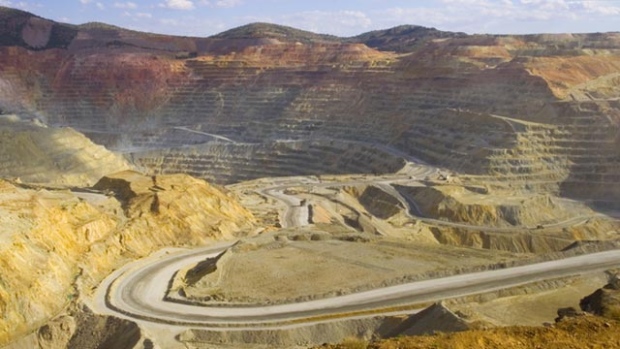Apr 25, 2017
Freeport hit by Indonesia export ban, permit talks to start
, Reuters

TORONTO - Freeport-McMoRan Inc (FCX.N), the world's biggest publicly listed copper miner, reported first-quarter results on Tuesday that reflected a months-long Indonesian export ban at its massive Grasberg mine, which clipped sales.
Freeport, which resumed copper concentrate exports from Indonesia on Friday after securing a six-month permit, said it will immediately begin negotiations with Jakarta on a long-term license for Grasberg, the world's second-biggest copper mine.
New rules in Indonesia require miners to divest a 51 percent stake in their operations, relinquish arbitration rights and pay new taxes and royalties.
Freeport has said it will only agree to a new permit with the same fiscal and legal protection in its current contract.
Freeport said it had cut costs, reduced its workforce and slowed spending on underground development and a new smelter in the Southeast Asian nation.
If it secures an agreement, Freeport expects to spend about $1 billion annually for the next five years on Indonesia developments. Without a deal, it said that spending will be significantly cut or deferred.
Adjusted first-quarter profit was $220 million, or 15 cents a share, compared with a loss of $196 million, or 16 cents, in the same period last year.
Indonesia's export ban, which began Jan. 12, meant deferred sales of 190 million pounds of copper and 280,000 ounces of gold.
Consolidated sales of 809 million pounds of copper and 182,000 ounces of gold lagged Freeport's January forecast of 1 billion pounds of copper and 460,000 ounces of gold.
Revenue notched up to $3.34 billion in the quarter, slightly lagging analysts' average estimate of $3.46 billion.
For 2017, Freeport expects sales of some 3.9 billion pounds of copper and 1.9 million ounces of gold, including second-quarter sales of 1 billion pounds of copper and 440,000 ounces of gold. The full-year outlook lags a January estimate of 4.1 billion pounds of copper and 2.2 million ounces of gold.
Capital expenditure of $1.6 billion in 2017 is down from a previous $1.8 billion estimate and well below $2.8 billion in 2016. Some $700 million of the 2017 spend is earmarked for underground development at Grasberg, which hinges on securing long-term operating rights.
Freeport, which has sold a string of assets to repair its balance sheet, had $15.4 billion in debt and $4 billion in cash at quarter-end. Two years ago, its debt reached $20.9 billion at June 30, exceeding its $15.7 billion market value.


